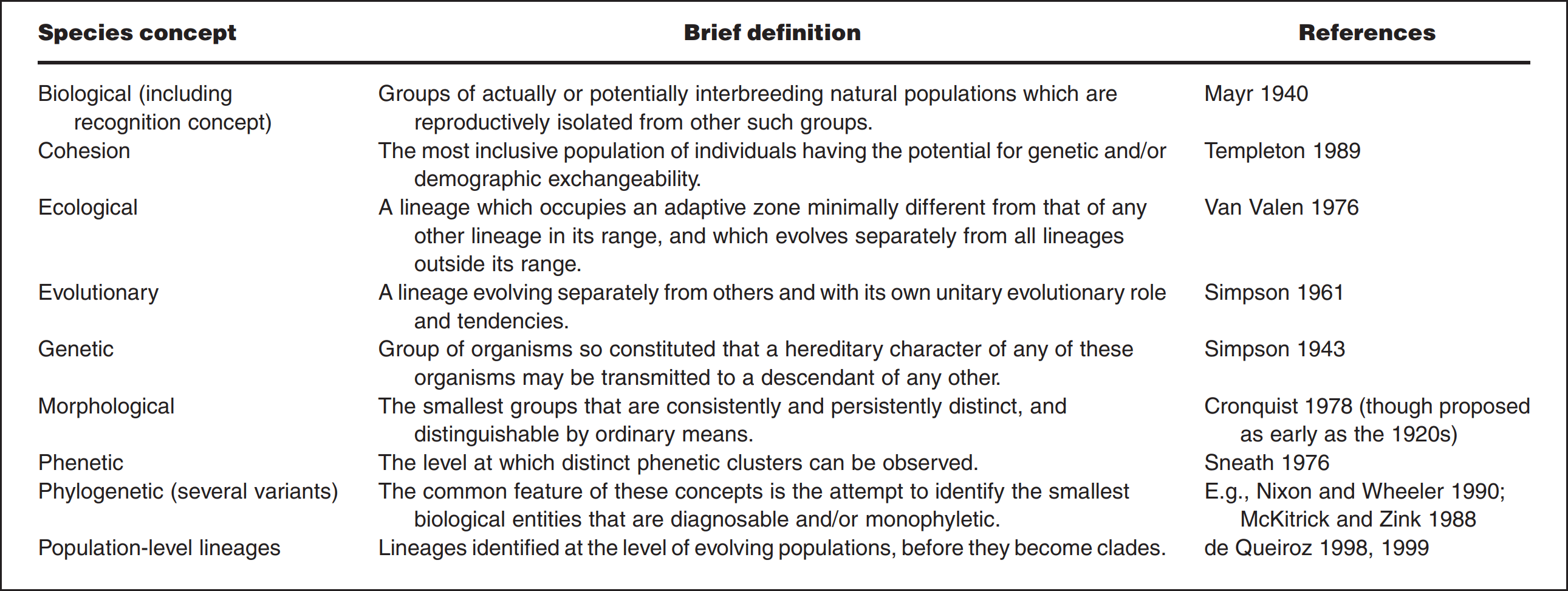Can we give a robust definition of species?
- No.
Species constantly evolve, diverge, converge, interbreed, and mix and shuffle and trade and spread genes. To draw a box at any particular point in time around a population or lineage, and to say, "all contained within are members of such-and-such species" fails to appreciate that this would only work for that particular case, and arbitrarily so; it is obviously futile to have a sound micro-taxonomymicrotaxonomy that would be generalisablegeneralizable to all animals, or microbes, or plants, or viruses for that matter. What consensus there might be for (e.g.) beetles is a poor yardstick for judging whether two alike bacteria ought to be lumped together as a species. Also, life, genes, individuals and populations are dynamic over time, so whatever box we draw will by definition require adjustment, and you can see that this adjustment will have to be arbitrary in many respects. This is an old problem, and it is more philosophical and ever-debatable, rather than something to be settled by empirical science triumphantly. From Nicholson's 1872 A manual of zoology (two centuries ago now):
"No term is more difficult to define than "species," and on no point are zoologists more divided than as to what should be understood by this word."
And to echo all that has been said…said from Piglucci (2003) Bioessays:
"First, the species problem is not primarily an empirical one, but it is rather fraught with philosophical questions that require — but cannot be settled by — empirical evidence."
Which also summarizes a few major biological definitions, some of which do not align:
And also a few philosophical issues that are worth considering when discussing the species problem:
This is not to say that conventions don't exist, or that there is a lack of an operational and specific definition of a species in each respective field; however, there is no overarching definition that applies robustly, hence the answer at the top!


